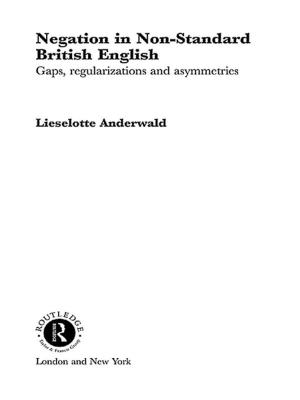| Author: | Louis Narens | ISBN: | 9781135640729 |
| Publisher: | Taylor and Francis | Publication: | October 12, 2012 |
| Imprint: | Psychology Press | Language: | English |
| Author: | Louis Narens |
| ISBN: | 9781135640729 |
| Publisher: | Taylor and Francis |
| Publication: | October 12, 2012 |
| Imprint: | Psychology Press |
| Language: | English |
Written by one of the masters of the foundation of measurement, Louis Narens' new book thoroughly examines the basis for the measurement-theoretic concept of meaningfulness and presents a new theory about the role of numbers and invariance in science. The book associates with each portion of mathematical science a subject matter that the portion of science is intended to investigate or describe. It considers those quantitative or empirical assertions and relationships that belong to the subject matter to be meaningful (for that portion of science) and those that do not belong to be meaningless.
The first two chapters of the Theories of Meaningfulness introduce meaningfulness concepts, their place in the history of science, and some of their traditional applications. The idea that meaningfulness will have different, but interrelated uses is then introduced. To provide formal descriptions of these, the author employs a powerful framework that incorporates pure mathematics, provides for qualitative objects and relations, and addresses the relationships between qualitative objects and pure mathematics. The framework is then applied to produce axiomatic theories of meaningfulness, including generalizations and a new foundation for the famous Erlanger Program of mathematics. The meaningfulness concept is further specialized with the introduction of intrinsicness, which deals with meaningful concepts and relations that are lawful and qualitativeness, which is concerned with qualitative concepts. The concept of empiricalness is then introduced to distinguish it from meaningfulness and qualitativeness.
The failure to distinguish empiricalness from meaningfulness and qualitativeness has produced much confusion in the foundations of science literature and has generated many pseudo-controversies. This book suggests that many of these disappear when empiricalness is intersected with the other concepts to produce "meaningful and empirical relations," "empirical laws," and "qualitative and empirical concepts."
A primary goal of this book is to show that the new theories of meaningfulness and intrinsicness developed in this book are not only descriptive but are also potent. Asserting that they do more than codify already existing concepts the book:
*works out logical relationships between meaningfulness concepts that were previously unrecognized;
*clarifies certain well-known and important debates by providing rich languages with new concepts and technical results (theorems) that yield insights into the debated issues and positions taken on them; and
*provides new techniques and results in substantive scientific areas of inquiry.
This book is about the role of mathematics in science. It will be useful to those concerned with the foundations of science in their respective fields. Various substantive examples from the behavioral sciences are presented.
Written by one of the masters of the foundation of measurement, Louis Narens' new book thoroughly examines the basis for the measurement-theoretic concept of meaningfulness and presents a new theory about the role of numbers and invariance in science. The book associates with each portion of mathematical science a subject matter that the portion of science is intended to investigate or describe. It considers those quantitative or empirical assertions and relationships that belong to the subject matter to be meaningful (for that portion of science) and those that do not belong to be meaningless.
The first two chapters of the Theories of Meaningfulness introduce meaningfulness concepts, their place in the history of science, and some of their traditional applications. The idea that meaningfulness will have different, but interrelated uses is then introduced. To provide formal descriptions of these, the author employs a powerful framework that incorporates pure mathematics, provides for qualitative objects and relations, and addresses the relationships between qualitative objects and pure mathematics. The framework is then applied to produce axiomatic theories of meaningfulness, including generalizations and a new foundation for the famous Erlanger Program of mathematics. The meaningfulness concept is further specialized with the introduction of intrinsicness, which deals with meaningful concepts and relations that are lawful and qualitativeness, which is concerned with qualitative concepts. The concept of empiricalness is then introduced to distinguish it from meaningfulness and qualitativeness.
The failure to distinguish empiricalness from meaningfulness and qualitativeness has produced much confusion in the foundations of science literature and has generated many pseudo-controversies. This book suggests that many of these disappear when empiricalness is intersected with the other concepts to produce "meaningful and empirical relations," "empirical laws," and "qualitative and empirical concepts."
A primary goal of this book is to show that the new theories of meaningfulness and intrinsicness developed in this book are not only descriptive but are also potent. Asserting that they do more than codify already existing concepts the book:
*works out logical relationships between meaningfulness concepts that were previously unrecognized;
*clarifies certain well-known and important debates by providing rich languages with new concepts and technical results (theorems) that yield insights into the debated issues and positions taken on them; and
*provides new techniques and results in substantive scientific areas of inquiry.
This book is about the role of mathematics in science. It will be useful to those concerned with the foundations of science in their respective fields. Various substantive examples from the behavioral sciences are presented.















